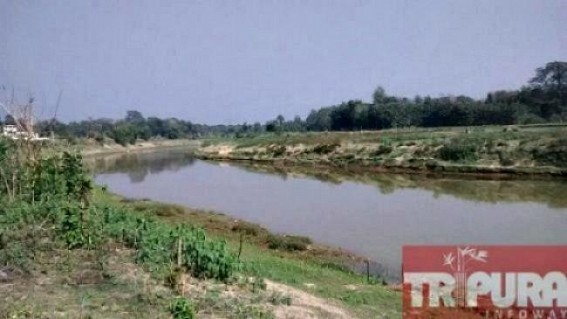TIWN

DHAKA / AGARTALA, March 18 (TIWN) : The BBIN Motor Vehicle Agreement between Bangladesh, Bhutan, India and Nepal is likely to come into effect from July this year, said Road Transport and Bridges Minister Obaidul Quader.The minister made the statement while talking to reporters after a meeting with Indian High Commissioner Harsh Vardhan Shringla at secretariat on Wednesday morning.
Earlier in June last year, Bangladesh, Bhutan, India and Nepal have signed the Motor vehicle Agreement, an epoch making initiative, for free movement of goods and passengers among the four countries.The deal was expected to come into effect by January this year.
Obaidul said: “During meeting, we have discussed several issues on connectivity between India and Bangladesh. Indian high commissioner has also come up with positive response over infrastructure investment under LOC-2 [Indian Line of Credit].
“Both the countries have agreed to build a bridge over the Feni River in order to increase connectivity among the countries through Sabroom and Ramgar borders.”
“Moreover, officials from Bangladesh, Bhutan, India and Nepal will meet in Dhaka on March 29-30 to sort out issues dogging cross-country motor vehicle agreement,” He added.
Under the agreement, the contracting parties will allow trucks and trailers with containers, passenger vehicles, hired or personal, to ply in the territory of other contracting parties.
In other words, under the deal, a tourist from Bangladesh can go to Bhutan or Nepal through India in his or her own car and a patient can travel from Khulna to Kolkata in a rented ambulance.
The agreement, which takes most of its text from the Saarc Motor Vehicle Agreement, will increase connectivity among the countries to boost trade and people-to-people contact.
The SAARC agreement could not be signed during the last regional summit held in Kathmandu in November, 2014, due to opposition from Pakistan.
India took the initiative to sign a parallel motor vehicle agreement comprising the four nations after failing to secure a deal in Kathmandu.
Bangladesh’s cabinet endorsed the BBIN MVA in 2015. All the other three countries have also given similar endorsements, paving the way for the signing of the agreement on June 15, 2015.
The agreement
The contracting parties now have to negotiate bilaterally or tri-laterally to settle the standard of procedures and modalities of movement of vehicles.
The parameters of the negotiation will be the types of vehicles to be allowed to cross borders, permits and documents required for vehicles, transit fees and charges, road signs and signals, insurance, business facilitation, applicability of local laws, dispute settlement, passport and visa, rights to inspect and search, and so on.
The four forms of the agreement are related to one year permits for regular passenger transportation, regular cargo transportation and personal vehicles and one-month permits for non-regular vehicle transportation like ambulances.
- 'Intolerable.....' Corporators Lodged FIR against Madhabi Biswas over 'Insane Video' on social media targeting PM & Mayor
- Blood Donation Camp Organized in Sipahijala District
- Yuvrajnagar Panchayat Samiti Chairperson's Husband Denies Molestation Allegations
- CPIM Submits Memorandum for Fair Voter List Revision
- 23 Panchayats in Gauranagar Block Receive Computers, Printers, and LED TVs



